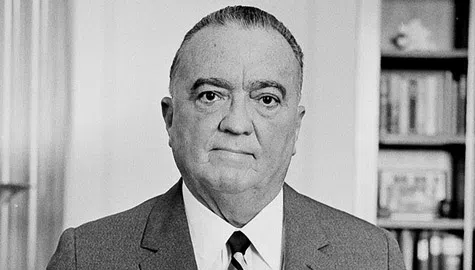FBI Director J. Edgar Hoover. Photo credit:
In March of 1971, eight anti-war protestors burglarized an F.B.I. office in Media, Pennsylvania, outside Philadelphia.
Shortly after the burglary Washington Post reporter Betty Medsger received an anonymous package with copies of some files stolen from the office.
“No journalist until that time had ever received secret government files that were stolen from someone outside the government and given to the journalist,” Medsger tells Steve Fast. The Post editors had to weigh the significance of the story versus the illegal means through which the information was gained.
“One of the files instructed agents to behave in such a way that they would enhance the paranoia among Americans,” Medsger says. “They would make people think there was an F.B.I. agent behind every mailbox.”
The files would reveal that for many, the Bureau did lurk in the shadows.
Documents showed that the F.B.I. was spying on college students and targeting political groups. Many of the groups targeted were civil rights activists. There was little evidence in the files that the individuals were suspected of any crime.
“Every black student on the campus of Swathmore [college]… had a file,” Medsger says. “On campuses switchboard operators were hired to listen to listen to phone conversations of professors and report this to the F.B.I., mail carriers were engaged as F.B.I. informants as were mid-level administrators.”
The identity of the burglars would remain secret for years; they were never captured by the F.B.I.
Medsger eventually would learn who had stolen and leaked the files. She writes about that story in her book “The Burglary.”
Listen to the interview: Betty Medsger on The Steve Fast Show
Follow Steve Fast on Twitter @SteveFastShow





